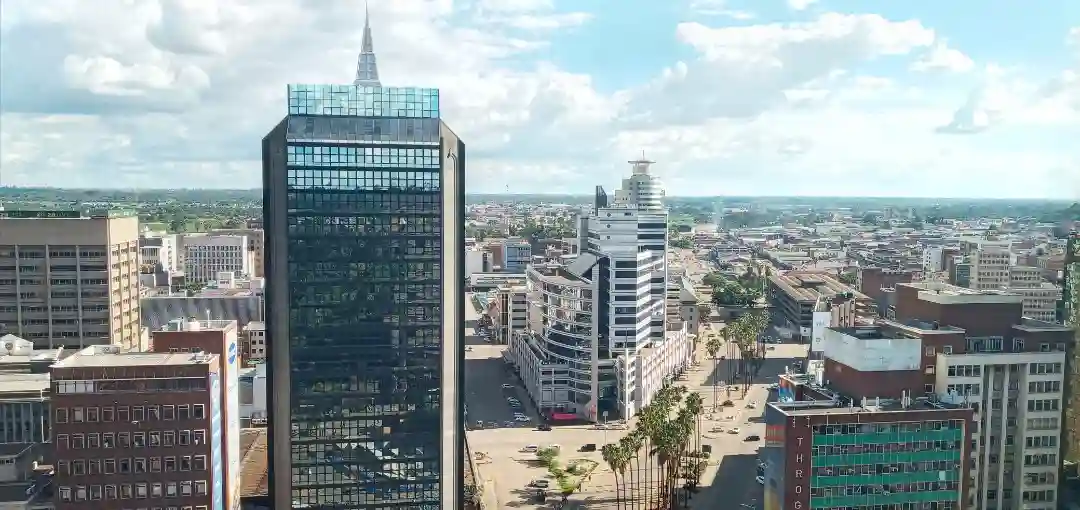Political overview
Since gaining independence in 1980, the ruling ZANU-PF party has held uninterrupted power in Zimbabwe, led first by Robert Mugabe, and then Emerson Mnangagwa from 2017. The main opposition is the MDC party.
Zimbabwe’s next presidential elections will take place in 2023.
Economic overview
Zimbabwe faces continued cycles of economic and humanitarian challenges. A bumper harvest and a post-COVID recovery will bring improvements, but longer-term prospects, and indeed investment opportunities, remain contingent on addressing deep underlying structural challenges.
These challenges include prohibitive and volatile foreign exchange controls, high inflation, fragile property rights, and pervasive corruption.
Necessary currency reforms have been slow, and whilst businesses are currently able to pay overseas suppliers and repatriate profits through the foreign currency auction, this process is slow and unreliable. Exchange rate management by the Reserve Bank continues to leave a large gap between the official and parallel market rates, increasing the risk of arbitrage.
A legacy of the Fast Track Land Reform programme of the 2000s is the inability to use agricultural land as collateral, stymying investment in the agricultural sector. The current administration’s relaxation of indigenisation requirements, and fledgling attempts to compensate dispossessed farmers, is a promising step, but occasional and localised instances of land invasions continue to damage the credibility of property rights in Zimbabwe. As a result, Zimbabwe’s global competitiveness has been declining since 2015 and is below the sub-Saharan African average. Zimbabwe ranks 124th (out of 137) in the Global Competitiveness Index (GCI).
Electricity shortages are common, although this situation has improved since the frequent outages of 2019. Increased rainfall has helped the country’s primary hydroelectric station return close to fully capacity, whilst structural reforms to the state utility have reduced its debt burden.
Human rights
Zimbabwe has a poor record on human rights. Continued abuses have resulted in the placement of targeted sanctions (travel bans and asset freezes) on four security chiefs on 1 Feb to reflect their role in the most egregious human rights violations (death of 6 protestors in Aug 2018 and 17 protestors in Jan 2019).
Business environment
For many of the reasons listed above, doing business in Zimbabwe can be challenging, with a number of obstacles and pitfalls.
Repatriating profits and paying overseas suppliers is cited as the main challenge, and exporters to Zimbabwe should engage with their customer and/or bank to ensure that this risk is mitigated.
The high and volatile inflation also makes the business environment more uncertain: many businesses price in US dollars but as discussed above the supply of foreign currency is erratic.
Zimbabwe sits at 140 (out of 190 economies assessed) in the 2020 World Bank Ease of Doing Business report, an increase from 155 in 2019.
The Zimbabwe Investment Development Authority was established in 2020 to support investors, and can be a good interlocutor for investors looking to engage with various branches of government.
Bribery and corruption
Corruption in Zimbabwe is widespread. Politically connected individuals are often awarded large state contracts, or allocated state-controlled resources, such as foreign currency.
Please see our anti-corruption strategy.
Bribery is illegal. It is an offence for British nationals or someone who is ordinarily resident in the UK, a body incorporated in the UK or a Scottish partnership, to bribe anywhere in the world. It should be noted that UK bribery legislation also applies to UK registered companies and UK nationals committing acts of bribery wholly outside the UK. Please see the information provided on our Bribery page.
Under the UK’s Global Anti-Corruption sanctions regime, Zimbabwean Kudakwashe Regimond Tagwirei was sanctioned (asset freeze and travel ban) in 2021 for profiting from misappropriation of property when his company, Sakunda Holdings, redeemed Government of Zimbabwe Treasury Bills at up to ten times their official value. His actions accelerated the devaluation of Zimbabwe’s currency, increasing the price of essentials, such as food, for Zimbabwean citizens.
Trade restrictions
As well as targeted sanctions on the five individuals referenced on the UK sanctions list, the UK implements an arms embargo and transit restriction on military and dual-use goods trade with Zimbabwe as part of Export Control Order 2008.
Further information can be found on UK guidance on current arms embargoes and other restrictions, as well as information on the UK sanctions regime in Zimbabwe.
It should be noted that these are targeted sanctions, and not intended to deter trade and investment with Zimbabwe. Indeed, the UK continues to work with Zimbabwe to increase bilateral trade, with the UK-ESA Economic Partnership Agreement coming into force on 1st January 2021.

